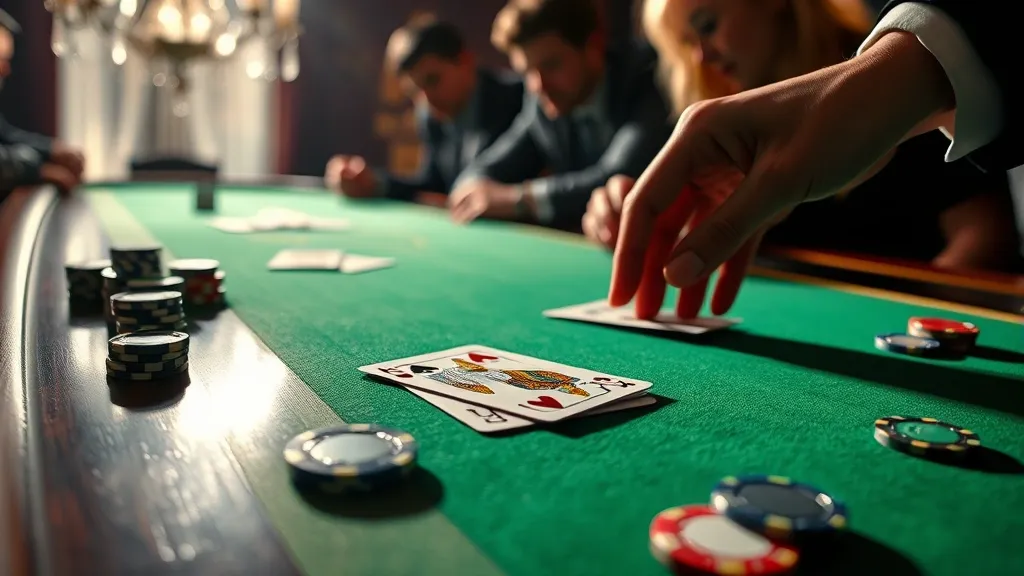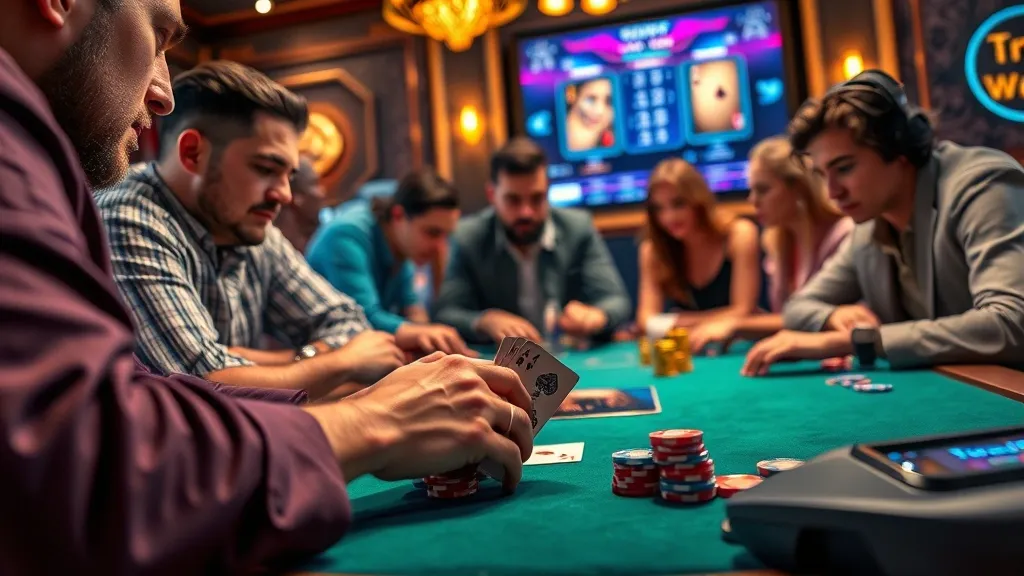The Lucky Rabbit’s Foot: Why Superstitions Are for Suckers
Alright, let’s chat about superstitions in gambling, like that classic lucky rabbit’s foot. Seriously, who came up with that? It’s like saying if you wear your socks inside out, you’ll win the jackpot. Spoiler alert: it doesn’t work. Superstitions can be fun and all, but when it comes to gambling, they’re just distractions.
First off, let’s be real. The whole idea of luck is just a way to explain things we don’t understand. I mean, have you ever noticed how some people swear they can’t lose if they wear their “lucky shirt”? But then they sit at the table, lose a few hands, and suddenly that shirt is nowhere to be found. It’s like, “Uh-oh, must be laundry day!”
Here’s the deal: gambling is based on odds and probabilities, not on some fuzzy feeling you get from a trinket or a ritual. When you’re at the casino, every spin of the wheel or flip of the cards is independent. So, just because you wore your “lucky” socks doesn’t mean you’ll draw the ace you’re hoping for. It’s more about math than magic.
- Luck is Random: The universe doesn’t care if you believe in lucky charms. It’s all about chance.
- Mindset Matters: Relying on superstitions might actually mess with your head. You might get overly anxious if you forget your lucky charm, which can lead to poor decisions.
- Real Strategies Work: Instead of focusing on luck, why not learn some actual strategies? Like, understanding the games you’re playing or managing your bankroll? That’s way more effective!
Honestly, I get it. Superstitions can feel comforting. They give us a sense of control in a world that’s pretty chaotic. But let’s not kid ourselves. If you’re going to the casino hoping a rabbit’s foot will save the day, you might as well bring a four-leaf clover and a horseshoe while you’re at it. Just don’t blame me when your luck doesn’t change!
In the end, enjoy the thrill of the game, but keep your feet on the ground. Superstitions? They’re just a fun little side show. The real action is in knowing the game and playing smart.
Hot Streaks and Cold Shoulders: The Fallacy of Gambler’s Fallacy
Alright, let’s dive into one of the most baffling things about gambling: the gambler’s fallacy. You know that feeling when you’re on a hot streak? You win a couple of hands in poker, and suddenly you think you’re the next poker prodigy. Or maybe you’ve been on a losing streak, and you start to convince yourself that a win is just around the corner. Spoiler alert: it’s all in your head!
The gambler’s fallacy is basically when you believe that past events affect future outcomes in games of chance. Like, if a coin has landed on heads five times in a row, some folks think tails is “due” to happen. Like, seriously? That coin doesn’t care about your feelings or your betting strategy. It’s just doing its thing!
Here’s the thing: each flip of that coin (or spin of the roulette wheel) is totally independent. It doesn’t remember what happened before. I mean, wouldn’t it be nice if life worked that way? “Oh, I’ve had a bad day at work, so tomorrow’s got to be awesome!” But nah, we don’t get to pick and choose our luck like that.
It’s super easy to fall into this trap, especially when you’re in the heat of the moment. I’ve been there. You’re on a roll, feeling like a million bucks, and suddenly, BAM! The universe decides to remind you that it doesn’t owe you anything. I once thought I was invincible at blackjack, and after betting big on a hunch, let’s just say my wallet was not very happy with me afterward.
So, what should you take away from this? The key is to keep your head straight and not let emotions cloud your judgment. Be aware that there’s no guarantee that a winning streak will last or that a losing streak will end just because you want it to. It’s all about probability and chance, and sometimes, the dice just don’t roll in your favor.
In the end, understanding the gambler’s fallacy can help you make better decisions at the table—or at least help you not to cry in your beer after a bad hand. Remember, it’s all about having fun, not letting your brain trick you into thinking you can outsmart the odds!
The House Always Wins, But How? Unpacking the Math Behind the Odds
Okay, let’s dive into the nitty-gritty of why that casino or online poker room always seems to come out on top. It’s like they’ve got a magic trick up their sleeves, but really, it’s just some good ol’ math. You see, every game you play has something called a house edge, which is basically the casino’s built-in advantage. Spoiler alert: it’s rarely in your favor.
This edge varies from game to game. For example, when you play blackjack, the house edge can be as low as 0.5% if you’re playing smart and sticking to basic strategy. But then you’ve got games like slot machines where the house edge can be as high as 15% or more! Yikes. No wonder I always feel like my wallet is disappearing into a black hole when I hit the slots!
So, how does this all work? Let’s break it down. When you place a bet, the odds are stacked against you, and it’s all about probabilities. The casino knows that over time, they’re gonna win more than they lose. It’s kinda like if you were to flip a coin a thousand times—sure, you might get lucky and win a few times, but in the long run, it’ll even out, and the house will take its cut.
- Randomness and Variance: Every spin of the slot machine or roll of the dice is random, but the casino has designed these games to ensure that over thousands of bets, the odds favor them.
- Long-Term Play: Where you might hit a jackpot once in a while, the house is banking on the fact that most players will keep coming back for more, losing little by little.
- Game Design: Even the way games are designed plays into the odds. Like, have you ever noticed how the sound effects in slots get way more exciting when you win, even if it’s just a tiny amount? It’s all psychological, folks!
Honestly, understanding the math behind the odds can feel a bit daunting, but it’s crucial if you want to walk into a casino with your eyes wide open (and maybe a few extra bucks in your pocket). At the end of the day, gambling should be fun, not a way to pay the bills. So, keep it light, know the odds, and maybe try to leave the casino with a smile on your face instead of a lighter wallet!
Chasing Losses: The Dangerous Illusion of ‘Getting Even’
Ah, the age-old idea of getting even. It’s like a siren song for gamblers, isn’t it? You lose a chunk of money, and suddenly you’re convinced that if you just keep playing, you’ll turn it all around. Spoiler alert: it rarely works out that way. In fact, chasing losses can lead you down a pretty dark path.
Picture this: you sit down at the poker table or spin the roulette wheel, and your heart races as you watch your bankroll dwindle. You think to yourself, “If I just bet a little more, I can win it back.” But here’s the kicker—this mindset often leads to even bigger losses. It’s like trying to put out a fire with gasoline. Not the best idea!
Many folks believe that after a series of losses, they’re “due” for a win. This is where the gambler’s fallacy comes into play. You might think, “I’ve lost five times in a row, so surely I’ll win next!” But the odds don’t give a hoot about your past losses. Each game is an independent event. The roulette wheel doesn’t have a memory; it doesn’t know you’re down a few bucks. It just keeps spinning, indifferent to your plight.
Now, let’s be real for a second. I get it. The thrill of the game can be intoxicating. It’s that rush of adrenaline, the hope of hitting it big that keeps people coming back. But when you start chasing losses, it’s like running on a hamster wheel. You’re putting in all this effort, but you’re not really getting anywhere. And pretty soon, you end up in a hole that feels impossible to climb out of.
So, what’s the takeaway here? If you find yourself losing more than you planned, it’s probably time to take a step back. Take a breather, go grab a snack, or binge-watch that show you’ve been meaning to catch up on. Chasing losses is not just dangerous for your wallet; it can mess with your head too. You might end up feeling frustrated, anxious, or even depressed—definitely not a fun time.
In conclusion, remember this: gambling should be about having fun, not about trying to “get even.” Keep it light, enjoy the game for what it is, and don’t let those losses weigh you down. After all, life’s too short to be chasing after losses—unless it’s ice cream, then by all means, chase away!



